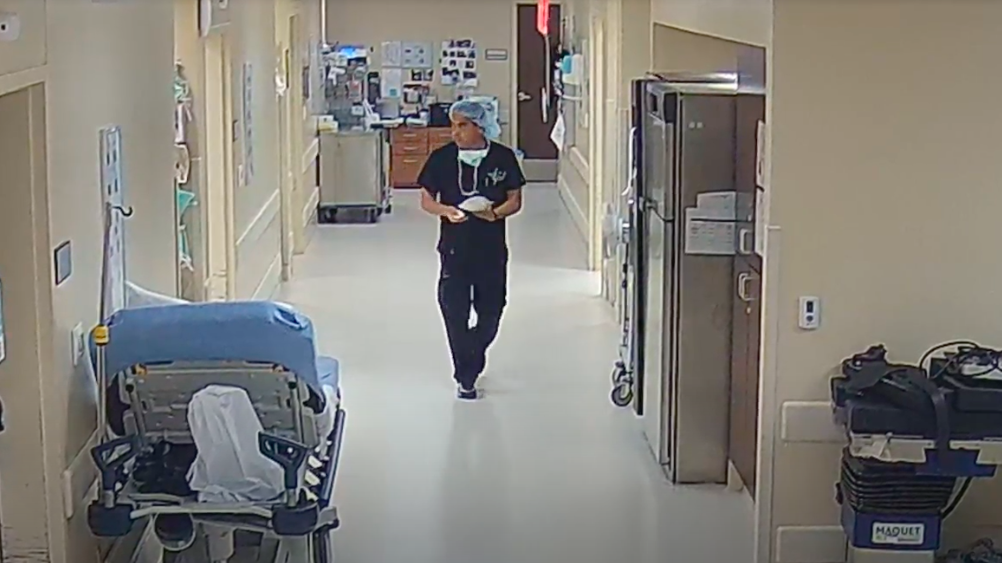A federal jury last week convicted Dallas anesthesiologist Dr. Raynaldo Ortiz of injecting dangerous drugs into patient IV bags at Baylor Scott & White Surgicare North Dallas that left a colleague dead and several patients in the intensive care unit during routine surgeries.
Federal prosecutors indicted Ortiz last fall when several patients required emergency cardiac care after surgeries at Surgicare North Dallas between May and August of 2022. The patients tested positive for medicines that should not have been present in their system. One of Ortiz’s anesthesiologist colleagues died in her home after self-administering an IV from the facility, and the Dallas County Medical Examiner found the medicines in her body as well.
Ortiz had an extensive disciplinary history with the Texas Medical Board, his former partner filed a restraining order against him, and he spent time 29 days in jail for shooting a neighbor’s dog with a pellet gun. Despite his criminal history and previous board discipline, he found work prescribing at Baylor Scott & White Surgicare North Dallas, which is partially owned by physicians. The patients who had the nerve blocker in their system were not patients of Ortiz, but all suffered after procedures during his shifts.
Ortiz’s colleagues began to get suspicious of tainted IV bags when an 18-year-old patient was rushed to the intensive care unit after a routine sinus surgery. A lab found bupivacaine (a nerve-blocking agent), epinephrine (a stimulant), and lidocaine (an anesthetic) in his system, which could have caused the symptoms. The lab also found a puncture in the IV bag. Colleagues testified in the trial that they noticed the complications after the patients began receiving the fluids from the IV bags, and patients described waking up fearing for their lives in an intensive care unit after going under anesthesia in a surgery center for a routine procedure.
“Dr. Ortiz cloaked himself in the white coat of a healer, but instead of curing pain, he inflicted it,” U.S. Attorney Leigha Simonton for the Northern District of Texas said in a video statement. “He assembled ticking time bombs, then sat in wait as those medical time bombs went off one by one, toxic cocktails flowing into the veins of patients who were often at their most vulnerable, lying unconscious on the operating table. We saw the patients testify. Their pain, their fear, and their trauma was palpable in that courtroom.”
Evidence at trial showed that Ortiz injected IV bags of saline with the drugs and placed them into warming bags at the facility, where they would eventually be used in his colleagues’ surgeries and cause complications. Surveillance video released during the investigation shows Ortiz removing IV bags and replacing them shortly after outside rooms where patients suffered complications, and also showed Ortiz watching as victims were transported out of the facility by emergency responders.
Ortiz faced discipline from the Texas Medical Board that could have caused him to lose his license. According to testimony from an FDA agent who investigated the incident, Ortiz “terrified” “virtually all” of his colleagues interviewed by federal investigators.
Jeremy Johnson, surgery director at the Baylor Scott & White facility where Ortiz worked, testified in the hearing that Ortiz was “very aggressive” and described a time he needed to call hospital security after Ortiz “got into my face” when Johnson asked him to wear a mask in a restricted area. Johnson also said that Ortiz was rough with patients while they were intubated when he became frustrated.
Johnson testified that he believed Ortiz may retaliate because of his testimony and said he feared for himself, his family, and everyone he works with because “he might come shoot us,” he said.
Investigators found that Ortiz was making $84,000 per month through his anesthesiologist consulting practice and received $3.2 million in disbursements over three years. Even though Ortiz’s medical license had been suspended for a medical mistake made in a previous surgery, his DEA registration was still active, meaning he was still able to prescribe medications.
The trial lasted eight days, and after seven hours of deliberation, the jury convicted him of four counts of tampering with consumer products, resulting in serious bodily injury, one count of tampering with a consumer product, and five counts of intentional adulteration of a drug. He faces a maximum penalty of 190 years, but a sentencing date has not been set.
“Patients expect that their doctors will use only safe and effective medical products during their surgeries. When illicit tampering occurs, serious harm and even death can result,” said Special Agent in Charge Charles L. Grinstead of the Food and Drug Administration’s Office of Criminal Investigations. “Working with our law enforcement partners, we will continue to monitor, investigate, and bring to justice those who would risk patients’ health and safety.”
Author







